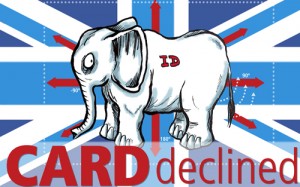My first article for TechRadar Pro, on how small businesses can make smart use of Twitter, has just been published. Thanks to Patrick Neale at Jaffe & Neale bookshop and cafe, and Sarah Warman at craft brewer and bar manager BrewDog, for their time talking about this. Continue reading “How small businesses from BrewDog to Jaffe & Neale use Twitter”
Posts
The CSU-zy merging, morphing map of NHS commissioning support units
Other maps of the new NHS: clinical commissioning groups (CCGs); local area teams (LATs); specialised commissioning hubs and clinical senates.
Just under a fortnight ago, the NHS Commissioning Board published an updated list of commissioning support units (CSUs) – the organisations that are about to start running ICT and other support functions for the vast majority of clinical commissioning groups.
Map removed as Google Fusion Tables no longer works.
This revealed that six of the old list of 22 had merged into three – requiring some map update work, see above* – although only one merger was highlighted in the announcement, that of West Yorkshire CSU and South Yorkshire and Bassetlaw CSU becoming West and South Yorkshire and Bassetlaw CSU under Alison Hughes. She was already acting as managing director for both, after Ming Tang, who the original MD for South Yorkshire and Bassetlaw, took the post of director of data and information management systems with the NHS Commissioning Board. Continue reading “The CSU-zy merging, morphing map of NHS commissioning support units”
ID cards and the NHS: separated soon after birth
It was only two years, one month and eight days ago that Damian Green fed the last pieces of Labour’s ID card scheme into a giant industrial shredder in Witham. The coalition, on getting into power, promised to destroy ID cards and protect the NHS. Although some think the government is putting the NHS through a metaphorical shredder with the changes that take effect on 1 April, that is overdoing it. In general, the coalition has kept its promises on these two issues.
What is not widely know is that, on its foundation in 1948, the NHS was completely tied to ID cards – you had to use a card to get treatment. Furthermore, the link survives to this day. Continue reading “ID cards and the NHS: separated soon after birth”
Chris Huhne meet Clarence Willcock: speeding Liberals against ID cards
 Chris Huhne will today be sentenced for perverting the course of justice, as will his then-wife Vicky Pryce, after she agreed to accept his speeding points a decade ago.
Chris Huhne will today be sentenced for perverting the course of justice, as will his then-wife Vicky Pryce, after she agreed to accept his speeding points a decade ago.
He is part of a Liberal tradition of both being arrested for speeding and helping to abolish ID cards. The instigator of this is someone who (I think) was quoted yesterday at the Liberal Democrat spring conference in dramatic circumstances.
In December 1950, Clarence Willcock, twice an unsuccessful Liberal candidate for Parliament, was stopped for speeding in Finchley. The police constable asked to see his ID card: the wartime identity card scheme had been retained and expanded by the post-war Labour government. Mr Willcock replied: “I am a Liberal, and I am against this sort of thing.”
Yesterday, Jo Shaw resigned from the Liberal Democrats over the party’s support for secret courts, saying: “I am a liberal and I am a democrat and we are against this sort of thing.” It would be surprising if she wasn’t remembering him.
Mr Willcock took his case through the legal system, eventually reaching the High Court – as you can read in Card declined, my new book on the history of identity cards in Britain: Continue reading “Chris Huhne meet Clarence Willcock: speeding Liberals against ID cards”
Is the answer to a question-marked headline always no?
No. Not always. Just quite often, like just now.
Looking at recent articles about the NHS picked up by @ImpatientNHS with question marks in their titles, there are several variants of the question-marked headline, and they don’t all mean ‘no’. Continue reading “Is the answer to a question-marked headline always no?”
